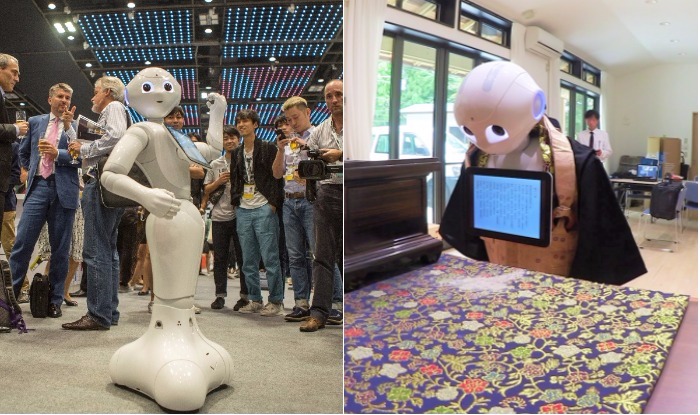Building a robot with interconnected metal parts and learning to program it from a computer will soon be a compulsory subject in educational systems around the world, as predicted by the Chinese robotics company Makeblock that wants to take advantage of this trend.
At its headquarters in the southern city of Shenzhen, known as the Silicon Valley of China, different kits are displayed to create robots with which children from 6 years can learn to program from a software and then physically check, in a toy, which They are its functionalities.
But in addition to selling these products at points of sale in 140 countries (70% of the company’s revenues come from abroad), Makeblock has developed a concept of “robotics laboratory” that is already implemented in 20,000 schools around the world.
Kenny Wang, head of the firm for Europe and Africa, explained that in Europe the countries in which they have more presence are the United Kingdom and France, where “the educational systems are more advanced”.
In Spain, a market in which the company entered in 2015, its learning system is taught in some Compulsory Secondary Education institutes of the Community of Madrid, a region that is acting as a “pilot” to test the program in 2018 and extend it next year to the rest of the autonomous communities.
The implementation of Robotics and Programming as a teaching subject first requires legislation in this regard, explains Wang, and then it is necessary to train teachers to be prepared to teach it.
“The key to education is to empower children and young people to be able to create things,” he insists, while explaining that programming serves to “connect people with artificial intelligence and robots.”
This subject of the near future is framed within the so-called STEAM education, which encompasses the study and learning of different disciplines such as science, technology, engineering, art and mathematics
However, the implementation of this subject as a compulsory subject can arouse criticism from those who regret that children and young people spend too many hours in front of smart device screens instead of playing outdoors or playing sports.
“Our system combines the computer with the toy, the digital world with the physical world,” so it is preferable to game consoles or computer games, defend on Makeblock.
Its products include a light drone-shaped robot that can fly and slide along the ground or water, and a smart car-shaped robot that combines a four-wheel stand with a control knob and is able to avoid obstacles, Identify colors and follow lines .
The Chinese firm also organizes robotics competitions for children and young people in different countries of the world in collaboration with companies or associations.
An example is the one they held in the US last year with the Washington Post newspaper, in which they challenged participants to build a robot in 12 hours to help journalists gather information in adverse situations such as a fire or a gas leak.
The company’s business model is divided between the sale to the final consumer and the agreements with schools and institutes, which represents 30-40% and 60-70% of their total turnover respectively.
In 2017, the Chinese firm increased its revenues by 61% to 2,030 million yuan (320 million dollars, 260 million euros), from 1,260 million yuan (200 million dollars, 163 million euros) that had been billed by the last year.














